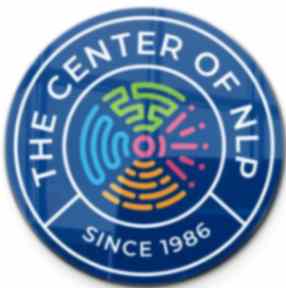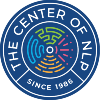CONTACT US [email protected]

The Psychology of NLP: How Your Brain Processes Language and Behavior
Language is the cornerstone of human communication, a complex web of sounds and symbols that we use to convey our thoughts, emotions, and intentions. At the intersection of linguistics and psychology lies Neuro-Linguistic Programming (NLP), a field that explores the profound connection between language, behavior, and the human mind. In this exploration, we will unravel the depths of the psychology of NLP and shed light on how your brain processes language and behavior.
Exploring the Foundations of Neuro-Linguistic Programming (NLP)
Neuro-Linguistic Programming, or NLP, is a framework that examines the relationship between neurological processes, language, and behavioral patterns that have been learned through experience. Developed in the 1970s by Richard Bandler and John Grinder, NLP has evolved into a powerful tool for personal development, communication, and psychotherapy.
At its core, NLP posits that there is a connection between neurological processes (neuro), language (linguistic), and behavioral patterns acquired through experience (programming). By understanding and manipulating this connection, individuals can reshape their thoughts, emotions, and behaviors to achieve desired outcomes.
The Role of Language in Shaping Reality
Language is not merely a tool for communication; it actively shapes our perception of reality. The words we use influence our thoughts, emotions, and actions, creating a powerful feedback loop within our minds. NLP delves into the intricacies of language, exploring how specific words and phrases can trigger different mental and emotional responses.
For instance, consider the impact of positive affirmations on the psyche. By consistently using positive language to describe oneself or a situation, individuals can reprogram their subconscious mind, fostering a more optimistic and empowered mindset. NLP techniques often leverage language to reshape ingrained thought patterns and cultivate positive change.
Patterns of Behavior and Thought
Central to the psychology of NLP is the recognition of patterns—both in behavior and thought. The human brain is wired to recognize and replicate patterns as a way of conserving cognitive resources. NLP identifies these patterns and provides tools to modify or replace them, offering individuals the opportunity to break free from limiting behaviors and thought processes.
By bringing awareness to these patterns, individuals can gain insights into their own behaviors and those of others. This heightened awareness is a key element in the process of self-discovery and personal growth. It allows individuals to identify and challenge automatic responses, paving the way for more intentional and adaptive behaviors.
"Ready to Elevate Your Communication? Call Us Now for NLP Coaching!"
The Power of Rapport and Mirroring
Effective communication is built on the foundation of rapport, and the establishment of a harmonious and cooperative relationship. NLP introduces the concept of mirroring, a technique where one person subtly imitates the non-verbal cues of another. This can include mirroring body language, gestures, and even speech patterns.
Mirroring creates a sense of familiarity and connection, fostering a more open and receptive communication environment. By aligning with the non-verbal signals of others, individuals practicing NLP can establish rapport more easily, making communication smoother and more effective.
LEARN MORE: https://www.centerofnlp.com/introtonlp
Anchoring Emotions
In the realm of NLP, emotions are viewed as states that can be anchored to specific stimuli. Anchoring involves associating a particular emotional state with a specific gesture, word, or touch. Through consistent repetition, these anchors become powerful triggers that can be consciously activated to evoke a desired emotional response.
For example, an individual may anchor a feeling of confidence to a specific hand gesture. When faced with a challenging situation, performing that gesture can trigger the associated feeling of confidence. This technique empowers individuals to manage their emotional states and respond more resourcefully to various situations.
The Unconscious Mind and NLP
A significant aspect of NLP involves communicating with the unconscious mind—the reservoir of memories, beliefs, and automatic processes that operate beneath conscious awareness. NLP techniques aim to access and influence the unconscious mind, recognizing its role in shaping behavior and responses.
Through language patterns, metaphorical storytelling, and hypnotic language, NLP practitioners seek to communicate directly with the unconscious, facilitating positive changes at a deep, foundational level. This process taps into the plasticity of the brain, allowing individuals to rewire ingrained thought patterns and create lasting transformations.
Ethical Considerations in NLP
While NLP offers powerful tools for personal development and communication, ethical considerations are paramount. The influence of language and behavior is a delicate dance, and ethical practitioners of NLP prioritize the well-being and autonomy of individuals.
It is essential to recognize that NLP should be applied responsibly and with respect for the autonomy and values of others. Understanding the potential impact of language on the unconscious mind underscores the importance of ethical considerations in the practice of NLP.
Conclusion
Neuro-Linguistic Programming serves as a guide in the vast landscape of the human mind, offering insights into the intricate dance between language, behavior, and the subconscious. As we continue to unravel the depths of NLP, we discover not only the power of language to shape our reality but also the profound capacity for personal transformation that lies within each individual.
The psychology of NLP invites us to explore the hidden recesses of our minds, challenging ingrained patterns and unlocking the potential for positive change. Whether used for personal development, communication enhancement, or therapeutic interventions, NLP remains a dynamic field that reflects the ever-evolving relationship between language and the human psyche.
Embracing the principles of NLP opens a gateway to self-discovery and empowers individuals to become architects of their reality, wielding the profound influence of language with wisdom and ethical discernment.
Check Out For more:
Copyright 1989 - 2024 | The Center of NLP © | All Rights Reserved

